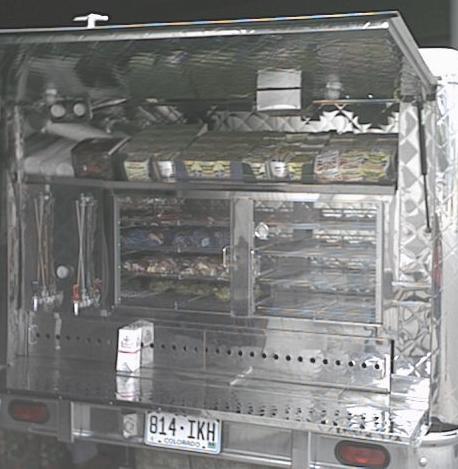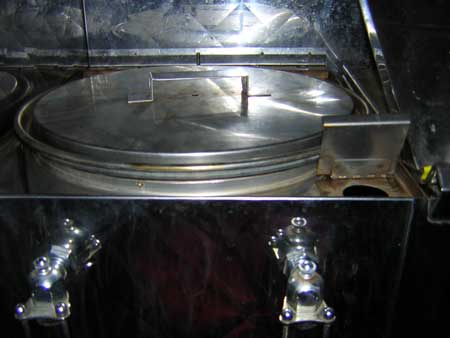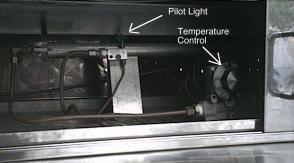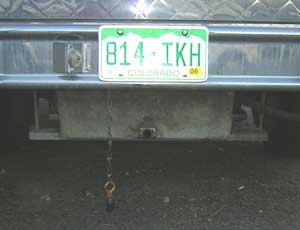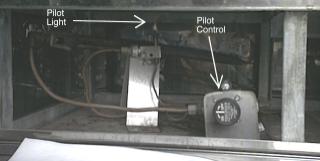 |
The Coffee Pot has a pilot light and
controls
as shown.
To light the pilot light, rotate the knob to "pilot"
(center position) and push in, then
light the pilot light. Hold in for several seconds before
releasing the
knob, and check that the pilot light remains lit.
The goal is to serve the
coffee at
160F. To turn the burner on to warm the coffee and
water, turn
the knob counterclockwise. To turn the burner off
turn the knob
clockwise until burner turns off. Leave the pilot
light on. Since
the coffeepot does not
have a thermostat, the temperature is
controlled manually. A higher temperature
is needed to
brew
coffee, but not for
the freeze dried coffee.
|
